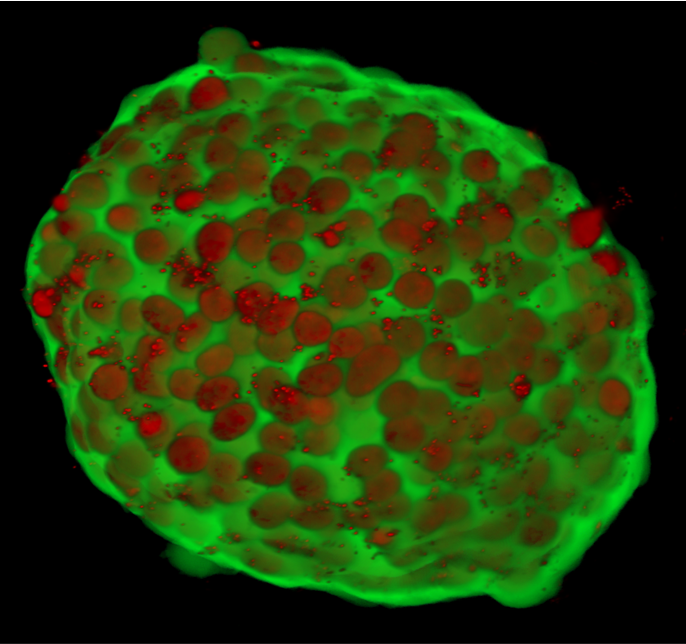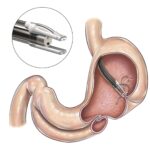Share this post:

World first: Human Cell Design has developed maturation process to obtain unlimited quantity of functional human cellssimilar in every respect to native human cells
Toulouse, France, January 31, 2022 – Human Cell Design (formerly Univercell-Biosolutions), a biotechnology company focused on generating translational human cellular models, today announces the launch of Endoc-BH5®, the fifth version of its model of ready-to-use, > 99% pure population of functional human pancreatic beta cells available in unlimited quantities. Remarkable in their total similarity to primary human beta cells for type 1 and 2 diabetes research, Endoc-BH5 promises to open up entirely new scientific avenues in diabetes studies. It overcomes all bottlenecks related to native beta cells on cell availability, batch to batch variability, flexibility and genome editing compatibility.
Human Cell Design achieved these developments in functional human pancreatic beta cells by combining the hiPSC-derived differentiated cells (human induced Pluripotent Stem Cells) and primary cell models with its proprietary NatLine® amplification and maturation platform. Its first attempt on human beta cells succeeded in reaching its ultimate goal after trying five versions. This fifth version, Endoc-BH5, now fully bridges the gap between the previous versions and native human pancreatic beta cells. The Endoc-BH cell family, whose first version was released a little over a year ago, has already been referenced in more than 100 peer-reviewed publications.
Type 1 diabetes (T1D) is a chronic autoimmune disease leading to the progressive loss of pancreatic beta cells. Type 2 diabetes (T2D) is a complex disease with genetic and non-genetic risk factors. Diabetes affects more than 500 million people worldwide. As the cellular mechanisms underlying these disorders are yet to be fully understood, authentic human beta cell models are key to advancing research and accelerating drug discovery in this area.
“Through Endoc-BH5, we are pioneering a new approach to diabetes research and drug discovery. This advanced cell line family demonstrates that our NatLine maturation platform enables complete functional maturation from progenitor cells,” said Bruno Blanchi, chief scientific officer at Human Cell Design. “In addition, Endoc-BH5 provides the diabetes research community with a stable, ready-to-use solution that can be stored in a freezer, for robust functional data, allowing them to use quantities of cells without the hassle of human islet preparation and the limitations of human tissue access and variability.”
Limitations in understanding beta cell pathophysiology are due to the lack of a stable and functional human beta cell model, restricted access to human cadaveric pancreatic islets and the functional limits of induced Pluripotent Stem Cells (iPSC)-derived beta-like cells. On the other hand, rodent models, whilst they have provided valuable insights into beta cell function, present fundamental structural, transcriptional and functional differences, in addition to a distinctive genetic background.
Human Cell Design’s fully functional EndoC-BH5 offers the possibility of studying human beta cell pathophysiology in vitro. Its ready-to-use and functionally-validated format eliminates time-consuming cell preparations and provides access to large batches of cells, batch-to-batch validated reproducibility and the ability to maintain stable function for weeks. In addition its frozen and storable format allows precise experimental planning and prevents project delays.
Moreover, Endoc-BH5 provides a valuable alternative to rodent beta cell lines and human pancreatic islets with stable and robust human beta cells in unlimited quantities.
“Human Cell Design’s partners, all widely recognized professionals in the fields of T1D and T2D, have expressed great confidence in Endoc-BH5. Our NatLine platform can now potentially provide the research community with many other innovative human cellular models and trigger a translational revolution thanks to fully-programmed functional human cells. We are currently working with 20 international groups, with a target of 50 partners by the end of 2022,” said Guillaume Costecalde, chairman of Human Cell Design.
Note to editors:
Consult ‘Large-Scale Functional Genomics Screen to Identify Modulators of Human β-Cell Insulin Secretion’ – for a review of the Endoc-BH5 human beta cells model.
About the NatLine platform
NatLine amplifies and maturates human progenitor cells to provide unlimited quantities of truly mature and fully functional human cells. The NatLine maturation platform is composed of two elements:
- A unique maturation bioreactor: SCID mouse kidney capsule is a growth factor crossroad and is used as a ‘bioreactor’ to maturate cell progenitors obtained from hiPSC differentiation
- A molecular toolbox: Conditionally excisable oncogene under the control of a specific late-stage promoter is used to selectively amplify mature cells, thus yielding a pure population of the desired functional cell type
Human Cell Design holds licenses from three patent families for its NatLine technology, and for hiPSC and cell differentiation.
About Human Cell Design S.A.S.
Human Cell Design (formerly Univercell-Biosolutions) is a French-based biotechnology company providing researchers in industry and academia with unique physiologically relevant human cell models. The company offers internally developed human cell models as well as its NatLine maturation platform and cell culture services to support translational research and drug development to help deliver better therapies to patients. Created in 2010 and based in Toulouse, France, the company employs 15 staff.
www.humancelldesign.com
To download documents, you can right-click on the links above and chose « Save link as… »




